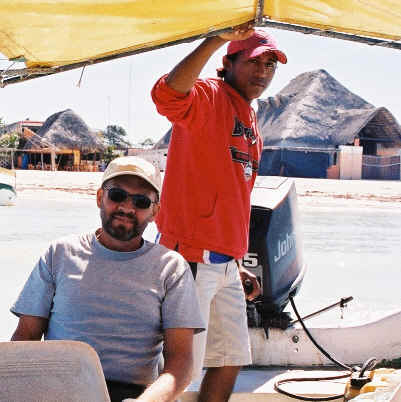Remember “Curveball”, the Iraqi “engineer” whom was served up by Chalabi and the INC. Laura Rozen excerpts an L. A. Time piece "How the U. S. Fell Under the Spell of 'Curveball'" that includes the following gem.
But for the fact that tens of thousands of innocent Iraqis have been killed and maimed, that the Iraqi infrastructure has been destroyed, that Iraq is increasingly coming under the influence of Iran, and that thousands of innocent U. S. military personnel have been killed and maimed, this would really be funny.
George Tenet and some of his CIA managers should be in prison, along with Bush, Cheney, Rumsfeld, Wolfowitz, Feith, Libby, Hadley, Rhodes, Perle, and a bunch of others in the Bush administration.
From Laura Rozen’s blog “War and Piece”:
“And get this, from after the invasion, when the CIA WINPAC bioweapons analyst who had been one of the champions of Curveball's information, goes to Iraq to check out his story:”
[The following excerpted from the L. A. Times report]
After U.S troops failed to find illicit Iraqi weapons in the days and weeks after the invasion, the CIA created the Iraq Survey Group to conduct a methodical search in June 2003.
Tenet appointed Kay to head it. The pugnacious Texan was convinced that Baghdad had hidden mobile germ factories. Kay's teams returned to Djerf al Nadaf and other sites identified by Curveball.
One CIA-led unit investigated Curveball himself. The leader was "Jerry," a veteran CIA bio-weapons analyst who had championed Curveball's case at the CIA weapons center. They found Curveball's personnel file in an Iraqi government storeroom. It was devastating.
Curveball was last in his engineering class, not first, as he had claimed. He was a low-level trainee engineer, not a project chief or site manager, as the CIA had insisted.
Most important, records showed Curveball had been fired in 1995, at the very time he said he had begun working on bio-warfare trucks. A former CIA official said Curveball also apparently was jailed for a sex crime and then drove a Baghdad taxi.
Jerry and his team interviewed 60 of Curveball's family, friends and co-workers. They all denied working on germ weapons trucks. Curveball's former bosses at the engineering center said the CIA had fallen for "water cooler gossip" and "corridor conversations."
"The Iraqis were all laughing," recalled a former member of the survey group. "They were saying, 'This guy? You've got to be kidding.' "
Jerry tracked down Curveball's Sunni Muslim parents in a middle-class Baghdad neighborhood.
"Our guy was very polite," Kay recalled. "He said, 'We understand your son doesn't like Americans.' His mother looked shocked. She said, 'No, no! He loves Americans.' And she took him into [her son's] bedroom and it was filled with posters of American rock stars. It was like any other teenage room. She said one of his goals was to go to America."
The deeper Jerry probed, the worse Curveball looked.
Childhood friends called him a "great liar" and a "con artist." Another called him "a real operator." The team reported that "people kept saying what a rat Curveball was."
Jerry and another CIA analyst abruptly broke off the investigation and took a military flight back to Washington. Kay said Jerry appeared to be nearing a nervous breakdown.
"They had been true believers in Curveball," Kay said. "They absolutely believed in him. They knew every detail in his file. But it was total hokum. There was no truth in it. They said they had to go home to explain how all this was all so wrong. They wanted to fight the battle at the CIA."
Back home, senior CIA officials resisted. Jerry was "read the riot act" and accused of "making waves" by his office director, according to the presidential commission. He and his colleague ultimately were transferred out of the weapons center.
The CIA was "very, very vindictive," Kay said.
Soon after, Jerry got in touch with Michael Scheuer, a CIA analyst who felt he had been sidelined for criticizing CIA counterterrorism tactics. Scheuer would quit within a year.
"Jerry had become kind of a nonperson," Scheuer recalled of their meeting. "There was a tremendous amount of pressure on him not to say anything. Just to sit there and shut up."
A CIA spokeswoman confirmed the account, but declined to comment further. Jerry still works at the CIA and could not be contacted for this report. His former supervisor, reached at home, said she could not speak to the media. "What was done to them was wrong," said a former Pentagon official who investigated the case for the presidential commission. "But we didn't see it so much as a cover-up as an expression of how profoundly resistant to recognizing mistakes the CIA culture was."
Kay's findings
In December 2003, Kay flew back to CIA headquarters. He said he told Tenet that Curveball was a liar and he was convinced Iraq had no mobile labs or other illicit weapons. CIA officials confirm their exchange.
Kay said he was assigned to a windowless office without a working telephone.
On Jan. 20, 2004, Bush lauded Kay and the Iraq Survey Group in his State of the Union Speech for finding "weapons of mass destruction-related program activities…. Had we failed to act, the dictator's weapons of mass destruction program would continue to this day."
Kay quit three days later and went public with his concerns.
Monday, November 21, 2005
Subscribe to:
Post Comments (Atom)

No comments:
Post a Comment